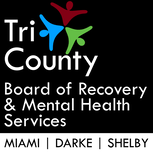Four children ages 8 through 14 were poisoned by carbon monoxide build up in the house. Three have died. Emergency responders – police, fire and EMTs – described the scene’s intensity: Four children, all in cardiac arrest, in an environment hazardous to the responders.
As the children are loaded into ambulances and a medical helicopter for transport to hospitals, the adrenaline of action begins to subside, and what is left is a deep sadness and a fear that this story will not have a happy ending.
Meanwhile, a short way across town, in the offices of the Tri-County Board of Recovery and Mental Health Services, news of the event begins arrive. Jodi Long, Director of Clinical Services and Evaluation, calls Ruth McDaniel at Recovery and Wellness Centers of Midwest Ohio and coordinator of the local Tri-County Crisis Response Team: Put the team on alert, the team could be called to respond.
Less than three hours after the initial call to 9-1-1, the Crisis Response Team - a group of volunteer professionals from social services, education, law enforcement, business, medical, clergy, victim advocates, and other specialists who have volunteered to serve - have gathered to plan how, when and where Crisis Response Team members will be available to those so profoundly affected by the tragedy.
In the coming hours and days, members of the CRT will meet with a variety of people impacted by the tragedy. For many, being able to talk through the events and their emotional response can alleviate the feelings of guilt (“if only…”), anxiety (“that could have been me…”), and deep sadness that can interfere with daily living.
Team members are dispatched to first responder departments, the schools, and a community center to help them cope with the sudden loss.
Crisis Response Team members are trained in techniques for helping people understand, accept and deal with the complex emotions that come in the wake of such tragedies. In some cases, an individual is having an especially difficult time, and the CRT can make recommendations and referrals for additional and longer-lasting counseling and support. There is no fee for the Tri-County Crisis team’s services. Funding is provided by the Tri-County Board of Recovery, and made possible by the three-county mental health levy.
“We view this as a service to the community,” said Mark McDaniel, Executive Director of the Tri-County Board. “It’s a way for us to give back for the support the communities have shown us over the years. When the community is in need and we can help, we are ready and willing to do so.”
The team can respond to events of all magnitudes. The CRT may be called in for such events as severe weather damage, as with the area flooding in 2014; or those involved in trying to help victims of a fatal car accident; or industrial accidents affecting co-workers. Sometimes just one or two CRT members are called out. Sometimes, it takes the whole team. Depending on the size of the response, the Tri-County CRT may call on the resources of the statewide Ohio Crisis Response Team or the National Association for Victim Assistance (NOVA).
The Tri-County Crisis Response Team will coordinate with existing Critical Incident Stress Management teams, the Red Cross, local crisis teams, or any other organizations responding to the community to insure comprehensive community wide services and to avoid duplication of services.
Members of the Tri-County CRT are trained in the NOVA model of crisis debriefing. “Volunteer members come from diverse backgrounds it’s that uniqueness and the fact that we train together under the NOVA model that allows our team to be strong in a response.” said Jodi Long, “We are always looking for new members to strengthen our team and who have the support of their employers to respond locally.” Many months before this recent tragedy, the Tri-County Board and the Tri-County CRT had arranged for a three-day training seminar by NOVA to train new members. The training is April 14-16 at the Tri-County Board offices in Troy. For information about the training or how to apply to become a member of the Tri-County CRT, go to www.tcbmds.org/crt; or call Brad Reed, Director of Community Resource Development, (937) 335-7727, ext 209; or email [email protected].
 RSS Feed
RSS Feed
